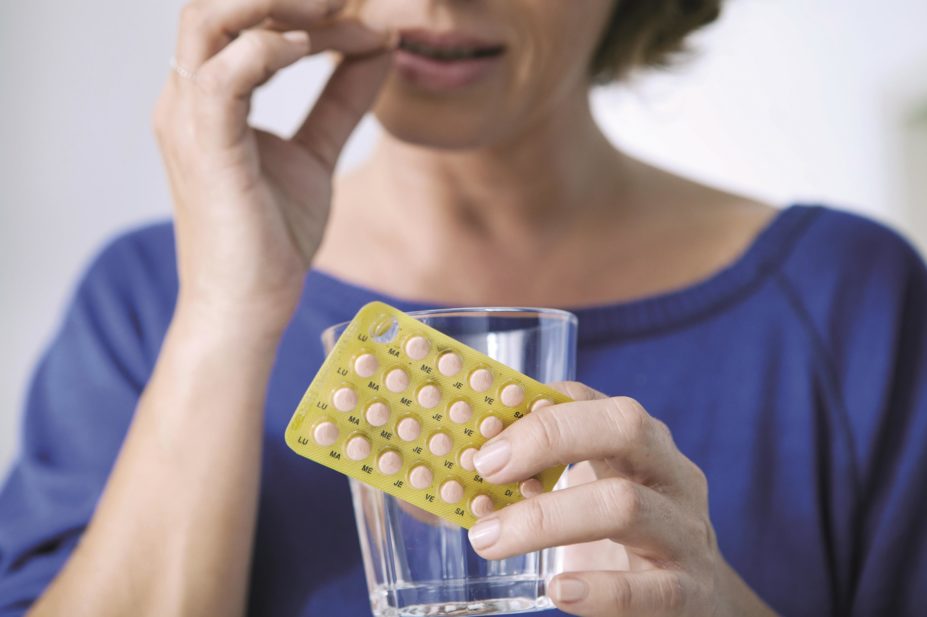
Shutterstock.com
Hormone replacement therapy (HRT) should be considered to treat menopausal symptoms and healthcare professionals should be more willing to discuss this option with patients, according to England’s National Institute for Health and Care Excellence (NICE).
In its first guideline on diagnosing and managing menopause, NICE says HRT is the most effective treatment for what can be “debilitating” symptoms.
“For the past decade, some GPs have been worried about prescribing HRT, and women worried about taking it,” says Imogen Shaw, a GP with a special interest in gynaecology and one of the guideline developers. She says the new advice aims to “empower women” to talk to their GP or practice nurse about treating symptoms of menopause and boost the confidence of health professionals to prescribe it.
The guideline aims to restore confidence in prescribing HRT and clarify the balance of benefits and risks. NICE says prescriptions for HRT almost halved in the years following the publication of two significant studies – the Women’s Health Initiative in 2002 and Million Women Study in 2003 – which linked it to an increased risk of breast cancer and cardiovascular disease. However, NICE says these studies focused on HRT for disease prevention and potential long-term risks, as opposed to the benefits of symptom relief.
A gap in some health professionals’ knowledge may mean they are “reluctant to prescribe HRT because they overestimate the risks and contraindications and underestimate the impact of menopausal symptoms on a woman’s quality of life”, the guideline states.
Christine Carson, programme director at NICE’s Centre for Clinical Practice, says: “The message to women is clear – talk about the menopause with your clinician if you need advice on your symptoms – it’s very important to discuss the options to find what might help you.”
Mary Ann Lumsden, chair of the guideline development group and honorary consultant gynaecologist at Glasgow Royal Infirmary, says HRT is a “very effective” treatment for several menopausal symptoms, but women should be informed that the risk of breast cancer and cardiovascular disease varies depending on the type of HRT used and the individual.
An estimated 1.5 million women experience some symptoms for up to four years after the onset of menopause, which on average starts at age 51 years in the UK, but some symptoms can last up to 12 years. These include hot flushes, vaginal dryness and low mood, as well as long-term conditions such as osteoporosis and cardiovascular disease.
Following a fresh appraisal of the evidence, NICE has recommended that health professionals offer HRT for the short-term symptoms of hot flushes and night sweats after discussing with the patient the benefits and risks of treatment. HRT can also be considered to ease low mood.
Women with cardiovascular risk should not automatically be excluded from receiving HRT, it says. The evidence shows the treatment does not increase cardiovascular disease risk when started in women aged under 60 years, nor does it increase the risk of dying from cardiovascular disease. However, there is an increased risk of venous thromboembolism (VTE) — a disease that includes both deep vein thrombosis and pulmonary embolism — from taking oral HRT.
The guideline contains a detailed appraisal of the various additional risks associated with HRT and NICE hopes this will help health professionals to communicate these risks better to patients. These risks also vary between women, so relevant lifestyle factors should also be discussed, it says.
The evidence review shows an increase in absolute rates of breast cancer among women taking HRT. Over 7.5 years, the baseline risk of breast cancer is 22.5 cases per 1,000 women aged 50–59 years. For those taking oestrogen and progestogen HRT, an additional 5 cases per 1,000 would be expected. This risk is related to treatment duration and reduces after stopping HRT, the guideline says.
Helen Stokes-Lampard, a spokesperson for the Royal College of GPs (RCGP), says the guidelines are welcome and clarify the evidence base for menopause treatments. “[NICE’s guidelines] will be of great use to healthcare professionals and our patients,” she says, adding that the RCGP also supports the move away from unnecessary blood tests to diagnose menopause for women aged over 45 years.
The guideline also suggests alternative treatments to HRT, including cognitive behavioural therapy for low mood or anxiety and vaginal oestrogen for women with urogenital atrophy. It advises not to routinely offer selective serotonin reuptake inhibitors (SSRIs), serotonin and norepinephrine reuptake inhibitors (SNRIs) or clonidine as first-line treatment for vasomotor symptoms alone, and to inform menopausal women there is no clear evidence for SSRIs or SNRIs to ease low mood without depression.
It also covers the diagnosis of menopause and premature menopause, including the appropriate use of laboratory and imaging tests.


